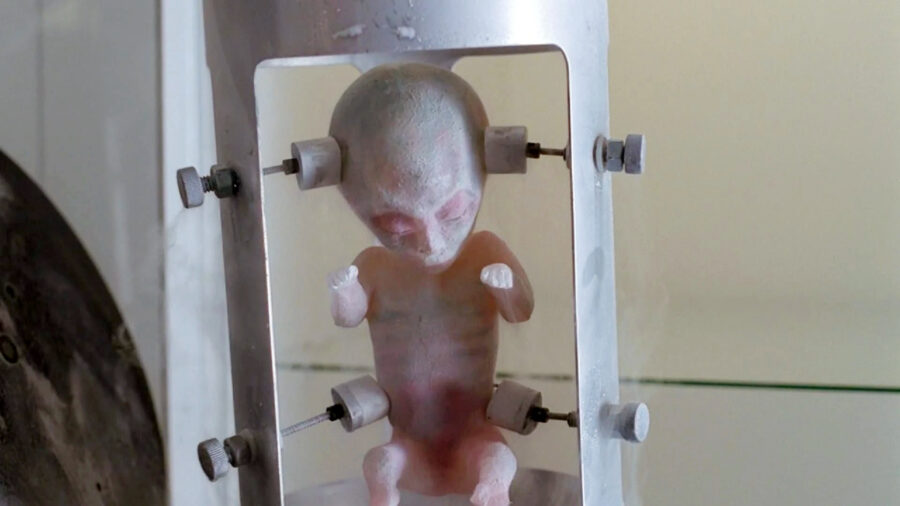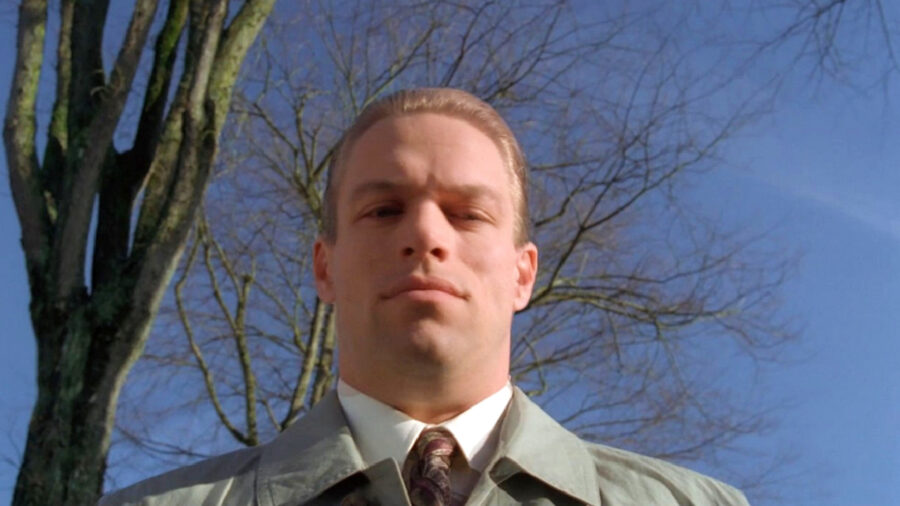X-Files Mythology Episodes Made One Fatal Error

The beloved 90s sci-fi series The X-Files was divided into two types of episodes, the standalone monster-of-the-week ones and the mythology episodes about the series’ long plot. This formula can be a great way to structure a show, finding the balance between ongoing mythology and shorter stories. However, The X-File’s greatest weakness was an over-investment in its mytharc.
Alien Conspiracy Vs. Monster Of The Week

Originally airing in 1993, The X-Files followed Gillian Anderson as Dana Scully and David Duchovny as Fox Mulder, two FBI agents who investigate paranormal cases. The mythology episodes focused on a government conspiracy involving a group of aliens planning to colonize Earth. The monster-of-the-week episodes were much more varied in both subject and tone, with episodes ranging from a terrifying alien parasite reminiscent of The Thing to a comedic tie-in with Cops.
The First Few Season’s Mythology Episodes Were The Best

For the first several seasons of The X-Files the mythology of the show was a huge draw, the slow-burn conspiracy plot building on itself over a few episodes each season. However, as The X-Files progressed, that mystery became increasingly convoluted and drawn out. These problems became increasingly worse the further the series went on until the once beloved mytharc became a burden on the series.
The Revival Mythology Episodes Were The Worst

The X-Files mythology is one of the biggest reasons the revival series failed, struggling to connect its new plotlines with an already established and previously concluded mytharc. The multi-part “My Struggle” episodes that constitute the bulk of the revival’s mythology episodes are among the weakest episodes of the disappointing new seasons.
They turned continuity into a liability rather than an asset. Meanwhile, the revival’s best episodes are all monster-of-the-week, like “Mulder and Scully Meet the Were-Monster” and “The Lost Art of Forehead Sweat.”
Seasons 8 And 9 Struggled With The Overarching Story

Seasons 8 and 9 of The X-Files also struggled with the burden of having too much mythology for its own good. Having a much higher number of mytharc episodes than the previous 7 seasons, the late seasons struggled to balance fun, varied, one-off episodes with more serious episodes about the alien conspiracy. The lack of balance between the two episode types and the increasingly convoluted nature of The X-Files mythology made the seasons much weaker.
Seasonal Arcs Work Better

While it can be very rewarding to have an ongoing mythology that’s explored over the course of a TV show’s run, it can become too repetitive. Other shows with a similar structure, like Buffy the Vampire Slayer solved this problem by focusing primarily on season-long arcs, setting plans for future seasons up with small moments rather than full episodes.
This allows a show to have a story that stretches for the show’s entire length without feeling like it’s treading water or needlessly drawn out the way The X-Files mythology felt by the series end.
Know When To Fold ‘Em

One of The X-File’s greatest strengths was its wide variety of tones, subjects, and plot structures. While the show was consistently able to keep that variety in its monster-of-the-week episodes, it struggled to keep its mythology feeling fresh and interesting. It’s crucial for a show to know when to conclude its big-picture story and start a new one, something Chris Carter and The X-Files writers failed to understand.












